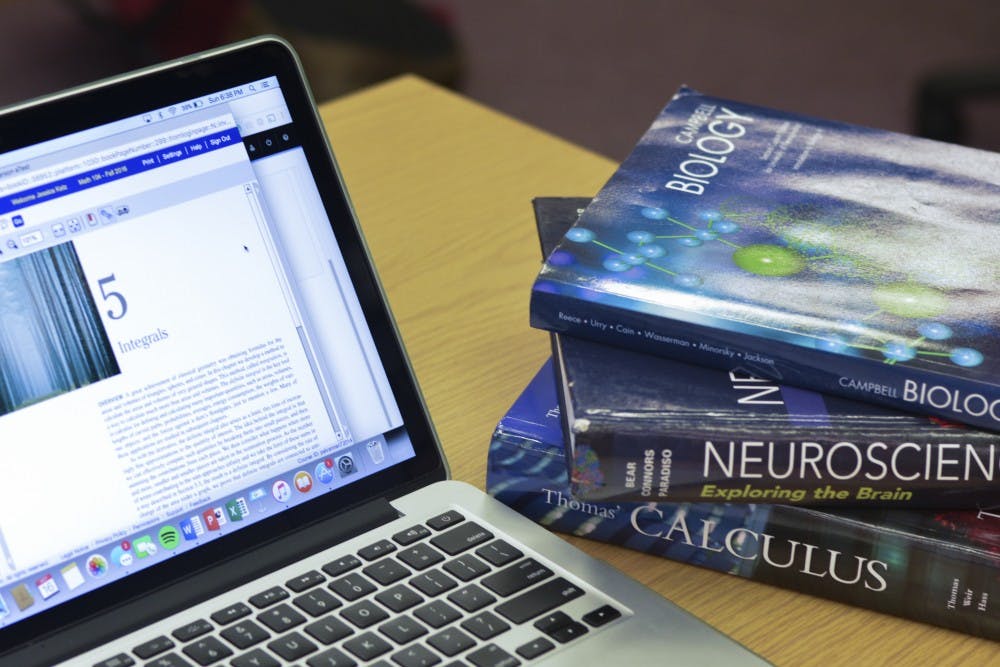Textbooks present a financial burden to students. Penn estimates that students will spend $1,318 on academic materials this academic year. But this dollar amount varies greatly per student, and even with financial aid, this is often a heavy cost to bear, particularly for first-generation, low-income students. The University offers a textbook library for FGLI students at the Greenfield Intercultural Center in order to cut costs. But due to a recent surge in demand, the library needs increased staffing, space, and funding. Penn needs to step up and provide more resources to the FGLI textbook library.
Penn has established that FGLI students are a priority through a variety of different initiatives. A major part of President Amy Gutmann’s Power of Penn Campaign emphasizes the importance of Penn First Plus — a program that aims to support first-generation college students at Penn. In August, Provost Wendell Pritchett appointed two faculty directors to lead the Penn First Plus office. The University also established a program to increase the accessibility of meals for students staying on campus over Thanksgiving and winter breaks.
Still, being a FGLI student comes with many “hidden costs,” and the University has a responsibility to help ease them. FGLI students don’t always have access to the materials they need to succeed in their classes, and that is a major problem. While it is encouraging that the University houses a textbook library for FGLI students, the administration must continue to provide adequate resources to sustain it.
While the FGLI program at the GIC received funding from Penn Libraries starting in 2017, Penn should continue to increase the funds allocated to the library.
"It’s reached the point where in order for it to be sustainable and be a helpful program, it needs more staff, organization, and tools like a library catalogue,” Penn First Finance and Operations Chair and College junior Melissa Perez said.
Further, professors need to be more understanding of these “hidden costs.” Many expect students to come prepared on the first day of class with textbooks. But often, it takes a long time to obtain affordable versions of class materials. An easy solution to this problem is for professors to upload PDFs of the readings for the first few weeks of class so that students do not fall behind.
If Penn is serious about growing and supporting the FGLI student population, the University must make a concerted effort to make their education more accessible. This can start with increasing funding for the FGLI textbook library — a simple step in leveling the playing field for all students.
Editorials represent the majority view of members of The Daily Pennsylvanian, Inc. Editorial Board, which meets regularly to discuss issues relevant to Penn's campus. Participants in these meetings are not involved in the reporting of articles on related topics.
SEE MORE FROM THE DAILY PENNSYLVANIAN EDITORIAL BOARD:
Penn cultural centers deserve more space than the ARCH basement
Kaepernick hasn’t left. Neither should Penn’s criminal justice reform efforts.
SEE MORE FROM THE DAILY PENNSYLVANIAN EDITORIAL BOARD:
Penn cultural centers deserve more space than the ARCH basement
Kaepernick hasn’t left. Neither should Penn’s criminal justice reform efforts.









